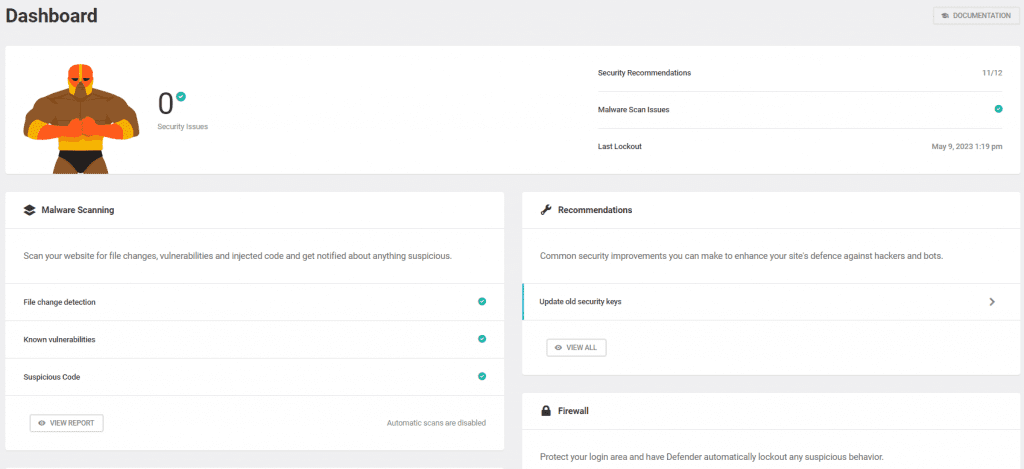In today’s digital landscape, website security is paramount. As more businesses and individuals rely on the internet to connect with their audience and conduct transactions, it is essential to prioritize the protection of your online presence. In this blog post, we will explore the importance of website security and provide valuable insights and tips to help you safeguard your website from potential threats. Join us as we dive into the world of website security and learn how to fortify your online presence.
Understanding Website Security
Website security encompasses a set of measures and practices aimed at protecting your website from various risks and threats. These can include hacking attempts, data breaches, malware infections, and unauthorized access. The goal of website security is to ensure the integrity, confidentiality, and availability of your website and its data. By prioritizing website security, you not only protect your own interests but also maintain the trust and confidence of your website visitors.
Common Security Vulnerabilities
Websites can be vulnerable to a range of security risks if proper precautions are not taken. Common vulnerabilities include weak passwords, outdated software, insecure plugins or themes, and lack of regular backups. Weak passwords make it easier for hackers to gain unauthorized access to your website. Outdated software and insecure plugins or themes can contain vulnerabilities that hackers can exploit. Failing to regularly back up your website leaves you vulnerable to data loss in the event of a security breach. It is crucial to address these vulnerabilities proactively to protect your website.
Essential Security Measures
To enhance website security, it is important to implement essential security measures. These include:
- Use strong and unique passwords: Avoid using common or easily guessable passwords. Instead, use a combination of uppercase and lowercase letters, numbers, and special characters.
- Keep software and plugins up to date: Regularly update your website’s software, content management system (CMS), and plugins to ensure you have the latest security patches and bug fixes.
- Employ SSL encryption: Implement Secure Sockets Layer (SSL) encryption to secure the transmission of data between your website and visitors. This is particularly crucial for websites that collect sensitive information or process online transactions.
- Implement a web application firewall (WAF): A WAF helps protect your website from various types of attacks, such as SQL injections, cross-site scripting (XSS), and distributed denial-of-service (DDoS) attacks. It acts as a shield between your website and potential threats.
- Regularly back up website files and databases: Perform regular backups of your website’s files and databases to ensure that you can restore your website in case of a security incident or data loss.
- Monitor website activity: Implement monitoring tools or services to detect and prevent suspicious activity on your website, such as unauthorized logins or malware injections.
- Utilize security plugins or services: Consider using reputable security plugins or services that offer additional layers of protection, such as malware scanning, login protection, and firewall features.
- Utilize Defender and 2FA: Take advantage of security tools like Defender, which provides advanced security features such as IP blocking, login protection, and malware scanning. Additionally, implementing two-factor authentication (2FA) adds an extra layer of security by requiring users to provide an additional verification code or token during the login process.
Securing User Data
Protecting user data is of utmost importance, especially for websites that involve user registrations, e-commerce transactions, or collection of sensitive information. To secure user data:
- Encrypt data: Utilize encryption technologies, such as SSL/TLS, to encrypt the transmission of sensitive data between your website
- Secure payment gateways: If your website processes online transactions, ensure that your payment gateways are secure and compliant with industry standards, such as Payment Card Industry Data Security Standard (PCI DSS).
- Adhere to data protection regulations: Familiarize yourself with data protection regulations such as the General Data Protection Regulation (GDPR) or the California Consumer Privacy Act (CCPA), and ensure that your website complies with the necessary requirements. This includes obtaining proper consent for data collection and processing, providing clear privacy policies, and enabling users to exercise their rights regarding their personal data.
The Role of Virtuello in Website Security
At Virtuello, we understand the critical importance of website security. We implement robust security measures to protect our clients’ online presence. Some of the tools, technologies, and practices we employ include:
- Cloudflare CDN: We utilize Cloudflare CDN to enhance website performance and security. By routing website traffic through Cloudflare’s network, we can filter out malicious traffic, protect against DDoS attacks, and provide an additional layer of security.
- Regular software and plugin updates: We ensure that our clients’ websites are kept up to date with the latest software versions, CMS updates, and plugin patches. By staying current with security updates, we can address any vulnerabilities and reduce the risk of exploitation.
- Security audits: We conduct regular security audits to assess the overall security posture of our clients’ websites. This includes evaluating password strength, checking for any outdated software or plugins, and identifying potential vulnerabilities that need to be addressed.
- Ongoing maintenance and support: We offer comprehensive website maintenance and support services to our clients. This includes regular backups, malware scanning, security monitoring, and prompt response to any security incidents or concerns that may arise.
In addition, we utilize Defender, a powerful security plugin, to enhance the security of our clients’ websites. Defender provides advanced features such as IP blocking, login protection, and malware scanning. We also encourage the use of two-factor authentication (2FA) to add an extra layer of security to the login process, ensuring that only authorized individuals can access the website’s backend.

In today’s digital landscape, website security is paramount to protect your online presence and ensure the trust and confidence of your website visitors. By understanding the risks, implementing essential security measures, and partnering with a trusted web design company like Virtuello, you can fortify your website against potential threats. Remember, investing in website security is an investment in the long-term success and reputation of your online presence.

